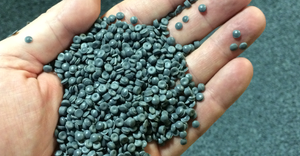Trash Politics: 2004
THIS HAS BEEN A LOW-KEY YEAR FOR garbage, at least legislatively. Most of the solid waste laws passed this year were relatively inconsequential. In fact, of the almost 1,200 garbage and recycling bills introduced in state legislatures this year, only 144 were signed into law as of mid-November (a few state legislatures were still in session after election day). As usual, California's legislature passed more garbage and recycling legislation than any other state assembly. I'm not sure why trash laws are so popular in the Golden State. Maybe the legislators have solved all of California's other problems. Most of the solid waste laws they passed were minor technical fixes to existing legislation, such as a bill delaying the implementation of the e-waste “advance recycling fee” by four months.
California's cell phone recycling bill, which requires retailers who sell cell phones to accept and recycle used phones, was a first. Whether or not it will be a national model remains to be seen. Until the different industries involved in e-waste can agree on legislation, Congress won't waste time or political capital resolving the issue for them. However, Congress did pass a modest landfill gas tax credit this year.
Michigan's legislature was the second most prolific state body, passing 14 garbage bills. Trash became a big issue in Michigan when Toronto began shipping its garbage to Michigan landfills. Local politicians soon realized it is easier to run against Canadian trash than to solve real problems. The legislature enacted landfill bans on several items, including beverage containers. Their thinking was simple: Michigan has a 10-cent deposit on beverage containers. The deposit is effective at keeping them out of landfills. The province of Ontario, home of Toronto, doesn't have a bottle deposit. Therefore, if you ban deposit containers from landfills, the Canadians will be screwed.
Great idea — the legislation passed! But leave it to Canadians to outsmart us Yanks. Toronto proved that its curbside program and its processing system met Michigan's requirements. The result: Canadian garbage continues to be landfilled in Michigan.
And in a note of sweet irony, a group of Michigan environmentalists recently visited Toronto to learn about the city's recycling success. According to the Toronto Star, the visitors took pictures of garbage trucks, looked in recycling boxes and toured the organics plant where “green-bin” contents are processed. Michigan's new motto should be “if you can't ban 'em, learn from 'em”.
At the local level, officials of the Pine Belt Regional Solid Waste Authority in Mississippi get the award for the year's most bizarre statement. The Authority is using a variant of flow control to force local haulers to use its landfill. The reasoning is simple. The Authority thinks that forcing hauling companies to use its landfill will make the uncompetitive facility “very competitive.” Hey, just think about that. The Authority doesn't need low prices or good service to be competitive, it just needs to force people to use its product. This could be a real breakthrough in economics. Don't run a good operation, just outlaw the competition!
And in 2005? More of the same. Garbage — and trash legislation — are eternal.
Opinions in this column do not necessarily reflect the opinions of the National Solid Wastes Management Association or the Environmental Industry Associations. E-mail the author at: [email protected].
The columnist is state programs director for the Environmental Industry Associations, Washington, D.C.
About the Author
You May Also Like




